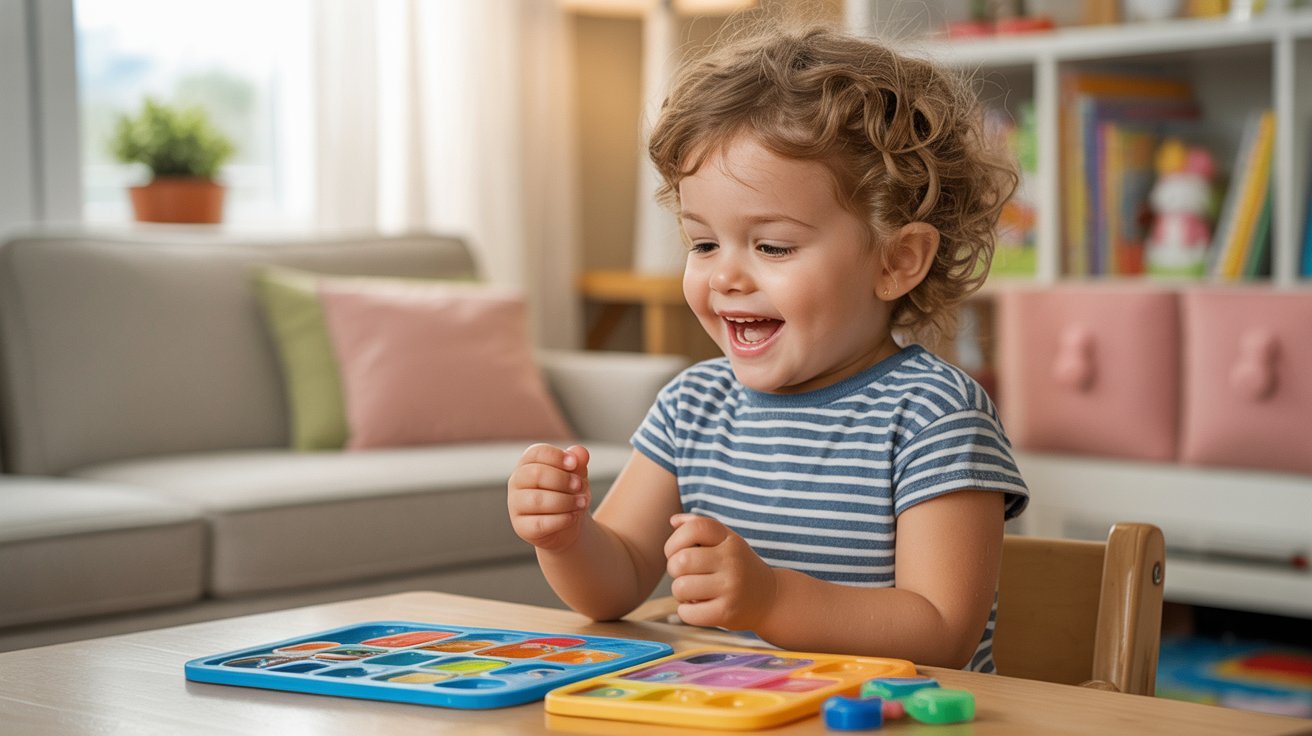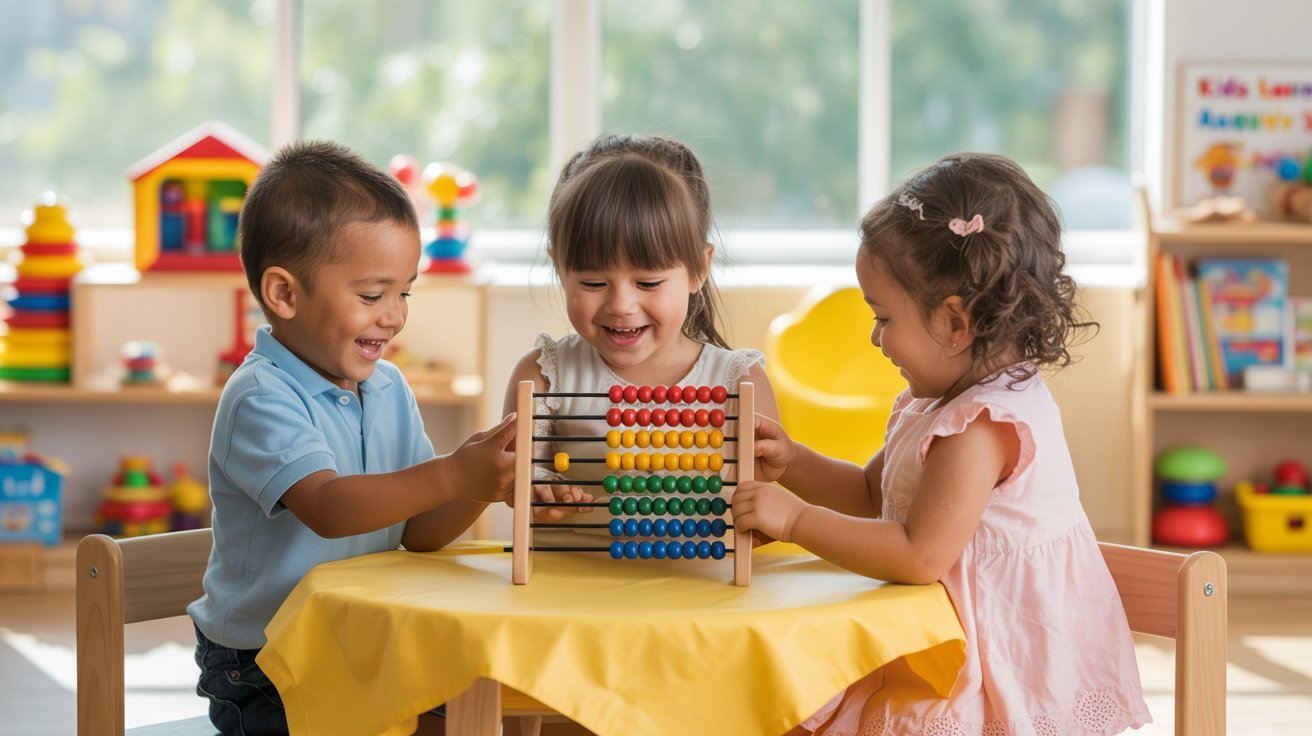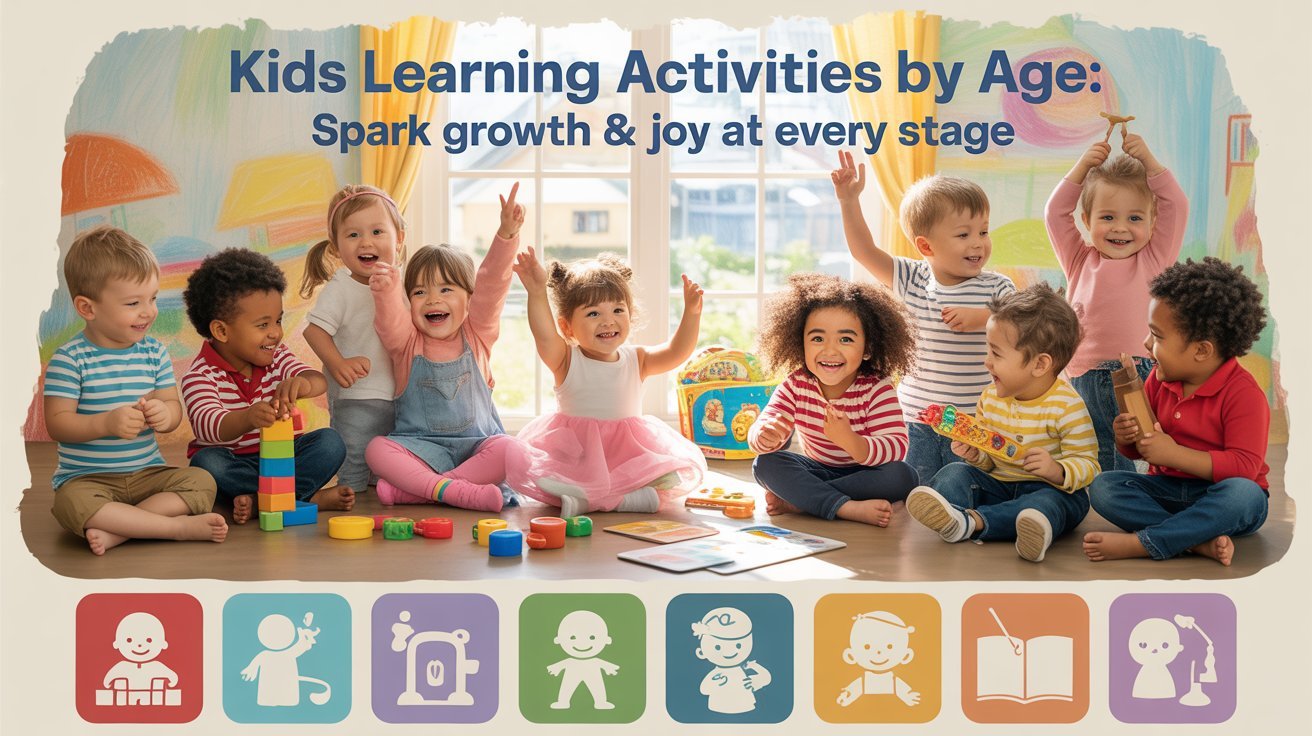From the very first smile to writing their name, children learn best through play, connection, and meaningful engagement. This comprehensive guide offers age-specific learning activities that foster confidence, curiosity, and creativity. Authored and reviewed by early childhood educators and developmental psychologists, it follows well-established scientific consensus on cognitive, motor, and emotional development.
This guide empowers parents, caregivers, and educators to nurture each developmental stage with joyful, purposeful activities designed to inspire lifelong learning.
Infants (0–12 Months): Building Bonds & Foundations
Key Focus: Sensory exploration, attachment, motor development
Expert Insight: Dr. T. Berry Brazelton and the American Academy of Pediatrics emphasize the importance of responsive caregiving and sensory input in the first year.
Engaging Activities:
-
Peekaboo & Mirror Play: Supports object permanence and self-awareness.
-
Tummy Time: Strengthens neck, core, and visual tracking.
-
Texture Mats: Encourage tactile discovery and early problem-solving.
-
Soft Music & Lullabies: Stimulate auditory processing and emotional comfort.
Why It Works: At this stage, babies learn by seeing, hearing, touching, and being loved. Activities that involve eye contact, soothing voices, and gentle movement wire the brain for emotional and cognitive growth.
Toddlers (1–3 Years): The World of Discovery
Key Focus: Language explosion, mobility, independence
Expert Insight: According to developmental psychologist Jean Piaget, toddlers are in the “sensorimotor” to “preoperational” stage, where exploration is key to learning.
Joyful Activities:
-
Simple Puzzles & Shape Sorters: Boost problem-solving and hand-eye coordination.
-
Sing-Alongs & Nursery Rhymes: Build vocabulary and rhythm.
-
Messy Play (Water, Sand, Finger Paint): Stimulates creativity and sensory development.
-
“Help Me” Chores: Pouring water, matching socks empowerment through routine.
Why It Works: Toddlers crave mastery. Short, repeatable tasks promote focus, memory, and a sense of accomplishment.

Preschoolers (3–5 Years): Imagination Meets Structure
Key Focus: Social skills, language, early math/literacy
Expert Insight: National Association for the Education of Young Children (NAEYC) supports play-based learning and exploration of real-world concepts at this stage.
Magical Learning Ideas:
-
Pretend Play: Dress-up, kitchens, and puppet shows spark empathy and storytelling.
-
Sorting Games: Color, size, and type develops logic and categorization.
-
Story Time with Q&A: Encourages comprehension and critical thinking.
-
Art Projects: Cutting, pasting, and drawing develop fine motor control.
Why It Works: Preschoolers thrive in environments where imagination is encouraged alongside gentle structure. It prepares them for kindergarten while preserving wonder.
Early School Age (6–8 Years): Confidence in Action
Key Focus: Literacy, numeracy, teamwork, self-regulation
Expert Insight: According to Dr. Lev Vygotsky, this age group benefits most from “scaffolding” supportive guidance that helps them move beyond what they can do alone.
Growth-Oriented Activities:
-
STEM Challenges (Build a Bridge, Make a Volcano): Introduce scientific inquiry and cause-effect.
-
Journaling or Drawing Stories: Supports self-expression and narrative skills.
-
Board Games (Uno, Guess Who): Enhance logic, memory, and turn-taking.
-
Cooking Together: Practical math, sequencing, and responsibility.
Why It Works: These activities connect knowledge with real-world application, boosting both IQ and EQ in meaningful ways.
Preteens (9–12 Years): Exploration, Identity & Mastery
Key Focus: Independent thinking, teamwork, curiosity
Expert Insight: Harvard’s Center on the Developing Child highlights this age as a critical time for executive function growth planning, focus, and emotional regulation.
Empowering Activities:
-
Research Projects (Animals, Space, Cultures): Foster curiosity and discipline.
-
Debate and Discussion Games: Build logic, confidence, and respectful disagreement.
-
Creative Writing & Blogging: Enhances emotional intelligence and critical thinking.
-
Tech Projects (Coding, Video Editing): Tech literacy meets creativity.
Why It Works: Preteens seek purpose. These activities affirm their unique interests while building skills that prepare them for adolescence and beyond.

Core Principles Across All Ages
1. Child-Led Play is Powerful
According to the American Academy of Pediatrics, play is “not frivolous” it’s the foundation of healthy brain development.
2. Praise Effort, Not Perfection
Following Carol Dweck’s growth mindset theory, children who are praised for effort become more resilient learners.
3. Keep It Safe & Inclusive
All activities should adapt to each child’s unique needs. Children learn best in environments where they feel seen, heard, and safe.
Our Mission: Learning That Lasts a Lifetime
This content is created by early childhood specialists, educators, and parenting advisors who share a passion for helping families thrive. Every activity here is selected based on trusted, peer-reviewed child development research and time-tested experience from classrooms and homes alike.
Our goal is simple: To bring joy, discovery, and deep learning into every home one playful moment at a time.
Frequently Asked Questions
Q: How do I know if my child is developing on track?
Developmental milestones vary slightly. Trusted resources include your pediatrician, the CDC’s milestone checklists, and early education experts. When in doubt, seek professional guidance.
Q: My child doesn’t seem interested in certain activities. Is that normal?
Absolutely. Children have different learning styles visual, auditory, kinesthetic. Keep experimenting, and follow their lead.
Q: Can screen time be part of learning?
Yes, in moderation. High-quality educational apps (like Khan Academy Kids or PBS Kids) can supplement but not replace hands-on learning.
Q: How much time should I dedicate to learning activities daily?
Rather than strict schedules, aim for daily pockets of meaningful engagement even 15–30 minutes of focused play can make a difference.
Q: What if I’m not a “creative” parent?
You don’t need to be! Your presence, encouragement, and willingness to play make all the difference. Follow your child’s curiosity, and creativity will follow.
Final Thoughts: Raising Lifelong Learners
Kids don’t just grow they blossom with the right support. Whether you’re guiding a toddler through their first puzzle or discussing astronomy with a curious 10-year-old, your involvement makes learning irresistible.
Remember, every moment matters.
Every giggle, question, and discovery is a step toward a brighter, more confident future.
So dive in. Spark wonder. Celebrate progress.
Because when learning feels like love, everything changes.














